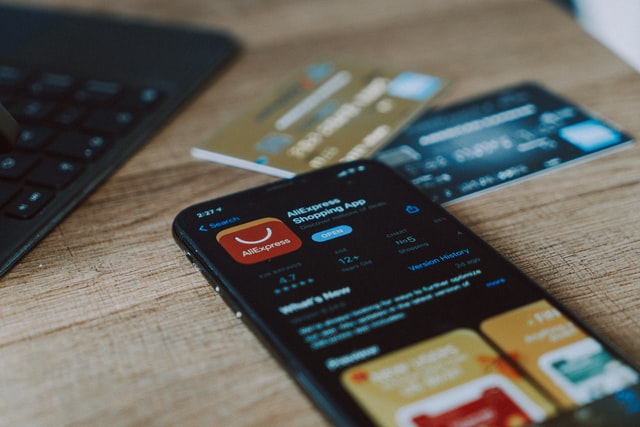If you’re in the market for a new credit card, you may be torn between a secured and unsecured option. How do they differ? Is one a better option than the other? Does the application process differ? Are the terms comparable? In this guide, you’ll learn the answers to these questions and more to help you make an informed decision.
What Is a Secured Credit Card?
A secured credit card is a debt product readily available through many banks and credit card companies. You’ll need a refundable security deposit to open the account, and it’s typically equivalent to your credit limit. The card is designed to help build or repair your credit and can be used to make in-store and online purchases. You’ll get a billing statement each month that includes the minimum monthly payment requirement and due date.
What Is an Unsecured Credit Card?
Also offered by banks and credit card issuers, unsecured credit cards operate just like secured cards. You can use them anywhere they’re accepted and build credit over time with responsible use. Most credit card issues report your payment activity to the three major credit bureaus – Experian, TransUnion and Equifax – but you should check with the issuer before submitting an application. The key difference is that you won’t need a security deposit to open a credit card.
Secured vs. Unsecured Credit Card
Here are some additional key differences between secured and unsecured credit cards.
Credit Checks and History
You’ll need good or excellent credit to qualify for an unsecured credit card with favorable terms. However, secured credit cards are a stepping stone that is accessible to people with low credit scores. Most people use secured credit cards to establish a credit history or rebuild bad credit. If you pay your bill on time each month, you can eventually convert your secured credit card into a traditional credit card.
Limits
Credit limits are typically more generous on unsecured credit cards. But if you opt to make a higher security deposit, you can potentially unlock a higher credit limit. Most secured credit cards have a $200 minimum security deposit requirement. However, each credit card issuer has a different maximum, with some letting you make a security deposit as high as $1,000 to $5,000.
Fees
You’ll generally pay fewer fees with an unsecured credit card. Still, there are unsecured credit cards that do not come with monthly maintenance fees or exorbitant annual fees. You should also look at the late payment and transaction fees. A credit card without annual fees isn’t necessarily cheap if the other fees are extremely high.
Interest Rates
Unsecured credit cards usually have lower interest rates since you need a better credit score to get one of these cards. Although secured cards pose a lower risk to the credit card issuer since they have collateral to fall back on, borrowing costs are still higher as these debt products cater to credit-challenged customers with a higher risk of default.
Rewards
Most secured credit cards do not offer incentives to cardholders. Some cards offer cash back, but those are the exceptions rather than the rule. On the other hand, unsecured credit cards offer enticing rewards, including higher cashback incentives, travel points, and more. The good news for secured card holders is that most cards let you upgrade to an unsecured credit card after a few months of making payments on time. After this upgrade, you could be eligible to earn valuable rewards.
When to Use a Secured Credit Card
Wondering if you should apply for a secured card first? These circumstances warrant the use of a secured credit card:
- You’re a credit newbie and can’t qualify for an unsecured credit card. You want to finally have a credit report and items on it that demonstrate a good payment history.
- You want to build or improve your credit health. You may not have a good enough credit score to get an unsecured card, but this is a good option for your credit score recovery.
- You struggle to keep your spending under control. A secured credit card has a lower credit line which puts a tighter limit on how much debt you can accrue.
When to Use an Unsecured Credit Card
Most people would prefer to use an unsecured credit card. However, if the following apply to you, this card could be a better fit:
- You have good or excellent credit and solid credit history. A credit card is a great resource for building credit, but that’s not your only motivation.
- You’re disciplined enough not to overspend, despite having a higher credit limit. You won’t have to worry about overdraft fees when you switch to a credit card.
- You don’t have the funds available to make a refundable deposit. Some people who do not have enough funds for this deposit can qualify for an unsecured credit card.
- You prefer a rewards credit card to earn cashback or points. (Note: Some secured credit cards offer rewards to cardholders but often come with a steep annual fee).
Should You Close Your Account When You Stop Using Your Secured Card?
Most secured credit card issuers have an unsecured credit card in place. They will give you a card upgrade, so you can start accruing rewards and have a higher credit balance if necessary. In addition, you will get your cash deposit back, which can help you stay on top of your current credit card debt. An unsecured credit card will even help you with financing from lenders since the higher credit limit gives you a higher credit utilization ratio.
However, not every credit card issuer has a quick path to an unsecured credit card. You may even obtain an unsecured card from another issuer before you can convert your secured card. Some financial institutions don’t even let you convert secured cards into unsecured ones.
Under those circumstances, it’s tempting to close your secured card. Doing so entitles you to your security deposit minus the remaining debt on your card. However, closing any line of credit will hurt your credit score. This action reduces your credit history, a component that makes up 15% of your credit score. It will only make sense to close a credit card if it has an excessive annual fee. You will not pay interest if you have no credit card debt and do not use the card. Even an unused credit card in good standing improves your credit score since each year adds to your credit history.







